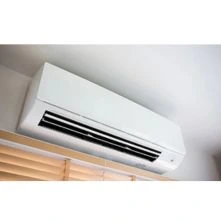Get A Quote
BIS Certification for Room Air Conditioners-Specification Part 2: Split Air Conditioners-IS 1391 (Part 2): 2018

Split air conditioners are widely used in residential and commercial spaces for their efficient cooling and quiet operation. Comprising an indoor evaporator unit and an outdoor condenser unit, split ACs offer flexibility in installation and better noise control compared to window units.
BIS certification under IS 1391 (Part 2): 2018 ensures that these systems meet strict national standards for cooling capacity, energy efficiency, electrical safety, and noise levels. The certification assures consumers of reliable, safe, and energy-efficient products, with the ISI mark serving as a guarantee of quality and compliance with the specified standards.
Introduction
BIS certification for Split Air Conditioners under IS 1391 (Part 2): 2018 is essential to ensure that the units meet stringent performance, safety, and energy efficiency standards. This certification ensures that the air conditioners are designed and manufactured to provide optimal cooling performance, operate safely, and consume minimal energy. The ISI mark on the product assures customers that it has undergone rigorous testing to meet these critical requirements, offering peace of mind with reliable operation, safety, and energy savings.
Why is BIS Certification Necessary for Split Air Conditioners?
BIS certification for Split Air Conditioners under IS 1391 (Part 2): 2018 is vital for ensuring safety, energy efficiency, and performance. This certification guarantees that the units comply with safety standards to prevent electrical faults, fire risks, and refrigerant issues, safeguarding consumers. It also ensures energy efficiency, helping reduce electricity consumption and environmental impact. The standard sets cooling capacity and noise level requirements, ensuring optimal performance and quiet operation, especially in residential and office settings. Additionally, it ensures the durability and reliability of the air conditioners, using high-quality materials and environmentally friendly refrigerants. The ISI mark further enhances consumer trust, assuring them of the product's quality, safety, and compliance with national standards.
Also Read
BIS QCO for Split Air ConditionersOverview of Indian Standard IS 1391 (Part 2): 2018
IS 1391 (Part 2): 2018 outlines the technical requirements for Split Air Conditioners used in residential and commercial applications. The standard covers essential aspects such as cooling performance, electrical safety, and energy efficiency. It ensures that the air conditioner meets the required cooling capacity based on room size, with guidelines for airflow efficiency and temperature control. The standard mandates strict electrical safety measures to prevent risks like electric shocks and short circuits, along with energy efficiency requirements, including the ISEER (Indian Seasonal Energy Efficiency Ratio) for reduced energy consumption. Noise level limits ensure minimal disturbance, while refrigerant guidelines ensure compliance with environmental regulations concerning global warming potential (GWP) and ozone depletion potential (ODP). Additionally, the standard specifies construction and material requirements to ensure durability, corrosion resistance, and long-term performance, along with safety guidelines for installation, operation, and maintenance.
Process for BIS Certification
The process for obtaining BIS certification for Split Air
Conditioners under IS 1391 (Part 2): 2018 involves several steps:
- Application Submission: Manufacturers need to submit a
completed application to BIS, providing technical specifications, product
details, and intended use.
- Documentation Review: BIS reviews the submitted documents
to ensure that the product meets the necessary performance, safety, and
environmental standards.
- Factory Inspection: BIS officials conduct an on-site
inspection of the manufacturing facility to assess the production process,
quality control systems, and testing procedures to ensure consistent product
quality.
- Sample Testing: Samples of the Split Air Conditioners are
tested in BIS-approved laboratories for compliance with cooling capacity,
energy efficiency, noise levels, refrigerant handling, and safety features.
- Certification Grant: Once the air conditioner meets all the necessary standards, BIS grants certification,
BIS Documents For Domestic and Foreign Manufacturer Check
BIS ISI Mark Certification Costing And Timeline
To Know The Process in Detail, Please Visit:
Under BIS Registration Products ISI and CRS
Conclusion
BIS certification for Split Air Conditioners
under IS 1391 (Part 2): 2018 ensures that the product meets the highest
standards of safety, energy efficiency, and performance. Obtaining the ISI mark
is a guarantee that the air conditioner has been tested for reliable operation,
safety, and cooling efficiency.For manufacturers, BIS certification is not only
a legal requirement but also an important step toward gaining consumer trust
and improving marketability. EVTL India offers expert consultancy services to guide
manufacturers through the BIS certification process, ensuring a seamless
application and compliance with the standards.
Free Call Back
Latest News & Update
📅 BIS Critical Component List (CCL) Updates for Solar PV Modules
🕒 BIS Fee Concessions for MSMEs and Startups | EVTL India
📅 Guidelines for Implementation of Essential Requirements for Security of CCTV
🕒 Omnibus Technical Regulation (OTR) Amendment Order, 2025
🕒 Extension of Timeline for Filing Annual Returns by Battery Producers
📅 Extension of Timeline for Filing Quarterly and Annual Returns for E-Waste
🕒 Extension of Concurrent Running Period for IS 302-1: 2008 and IS 302 (Part 1): 2024
🕒 BIS Guidelines for Grant of Licence (GoL) | EVTL India
📅 CPCB Guidance on filing of Application, Fees and more
🕒 CPCB Notification on Labelling of Plastic Packaging
📅 Mandatory Compliance for Input Materials of Steel and Steel Products for Imports
🕒 BIS Guidelines for Scheme-X Certification for OTR-Regulated Products
📅 BIS Upgrades Product Certification License Numbers to 10-Digit Series
🕒 BIS Certification No Longer Mandatory for 14 Chemical & Polymer Categories
Why Choose EVTL INDIA
Expertise in Indian Regulatory Standards
End-to-End Support
Trusted by Top Indian & Global Brands
Fast Processing & Transparent Pricing
Strong Liaison with Indian Authorities
Company Profile















